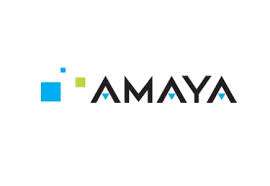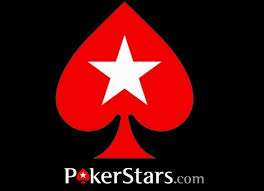PokerStars, Amaya Gaming Intend to Enter Daily Fantasy Sports Market
When the front door is locked, try looking for a way in around back. That seems to be the approach PokerStars is taking, as while its efforts to launch an online poker room in New Jersey continue to be slowed, the poker giant’s parent company announced that it plans to break down a different gambling door later this year. In this week’s earnings call, Amaya Gaming CEO David Baazov said that his company has set its sights on the daily fantasy sports arena.
“We have also taken the strategic decision to enter the daily fantasy sports category and are pursuing parallel tracks of internal development and strategic acquisition,” Baazov said. “We expect to provide more details on this strategy in the second half of 2015 but see a clear crossover from poker and daily fantasy sports.”
 Traditional fantasy sports have been around since the 1950’s, but the modern roots of the game took hold three and a half decades ago with the advent of rotisserie baseball. Fast forward to the internet age and fantasy sports have exploded because of how easy the internet has made it to manage leagues. Back in “the day,” I remember having to get together with friends for a baseball draft and pour over magazines to figure out who to pick. The league’s commissioner had to compile stats every day from the newspaper by hand and mail out standings to team “owners” every week. Now, all of that is done automatically online; the only thing commissioners need to do is referee arguments.
Traditional fantasy sports have been around since the 1950’s, but the modern roots of the game took hold three and a half decades ago with the advent of rotisserie baseball. Fast forward to the internet age and fantasy sports have exploded because of how easy the internet has made it to manage leagues. Back in “the day,” I remember having to get together with friends for a baseball draft and pour over magazines to figure out who to pick. The league’s commissioner had to compile stats every day from the newspaper by hand and mail out standings to team “owners” every week. Now, all of that is done automatically online; the only thing commissioners need to do is referee arguments.
Up until a few years ago, all fantasy sports leagues were season-long affairs, requiring a solid commitment by participants. It is very common to see people lose interest over the course of a season or simply stop paying attention because their team is bad, harming the league as a whole. Daily fantasy sports, or DFS for short, is a product of the internet and solve the commitment problems of season-long fantasy leagues (though season-long leagues are still immensely popular). DFS is just want it sounds like: fantasy sports contests that span the course of a single day’s games. In a typical DFS competition, participants fork over a buy-in and construct a team of players who will be playing in that day’s games (be it football, baseball, basketball, or what-have-you). Once all the games are completed, the DFS player whose team did the best (based on points earned according to a published formula) wins the first place prize money. There may, depending on the size of the league, be prizes for other finishers, as well.
Some DFS contests can span more than one day, depending on the sport. Football leagues, for instance, will usually include the Sunday games as well as the Monday night game.
Daily fantasy sports is most certainly gambling. Unlike online poker or casino games, though, it is legal in the United States because of a carve-out in the Unlawful Internet Gambling Enforcement Act of 2006 (UIGEA). Because DFS meets the following criteria as laid out in the UIGEA, it is legal:
1. All prizes are made known in advance of the contest and their value is not determined by the number of entrants or the entry fee.
2. Results “reflect the relative knowledge and skill of the participants” and must be determined “predominantly” by the stats produced by athletes in multiple games.
3. The winning outcome of the DFS match is not based on point spreads, a single real-world team, or a single real-world athlete.
Daily fantasy sports clearly meet the second and third criteria. The first one could be a bit murky depending on how the site is setup. If prizes are determined like a poker tournament, that is, the higher the buy-in and the more players there are, the larger the prizes, then DFS might not meet that point. But it appears that most sites get around that by simply structuring their games as being open to a set number of players at a set buy-in, with the prizes published in advance, essentially like a Sit-and-Go.
As Baazov said, Amaya Gaming is considering more than one avenue to entering the daily fantasy sports space: acquisition or development. The way Amaya has worked, it seems like acquisition is the more likely way to go, but the leaders in the industry are valued at over a billion dollars, so that may be well out of Amaya’s price range, especially since the company paid $4.9 billion for PokerStars less than a year ago. Additionally, Baazov said, “Nobody’s software that we’ve seen can currently support our volume that we would have if we launched fantasy sports.”
Thus, Amaya/PokerStars may very well end up developing a brand new solution in-house. Whatever it is does, it needs to get to work, as the company’s goal is to go live with a daily fantasy sports product in the U.S. by the start of the NFL season, which is at the beginning of September.



















COMMENTS